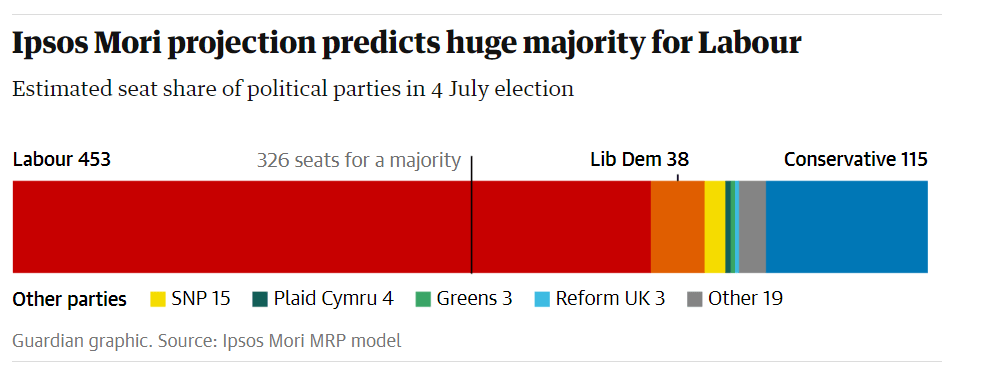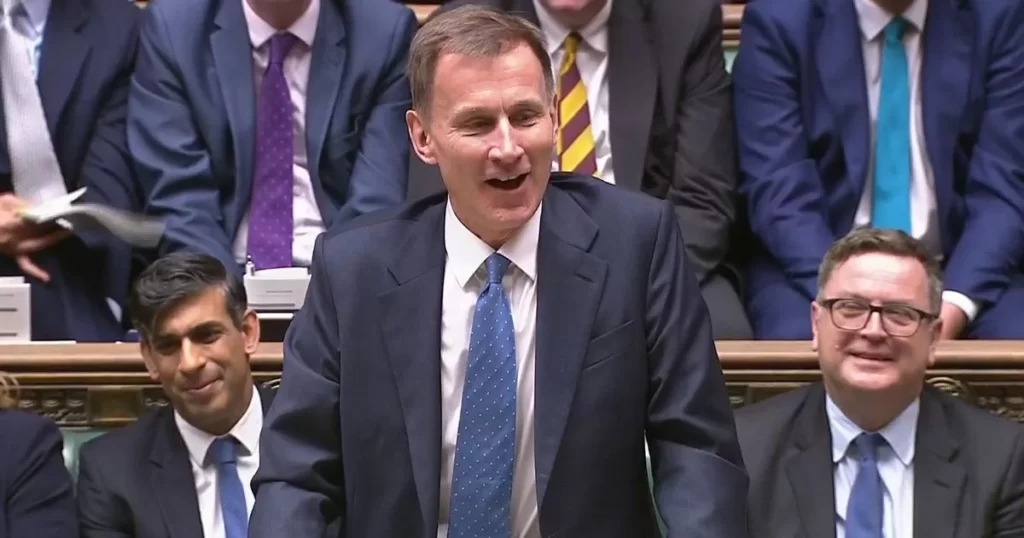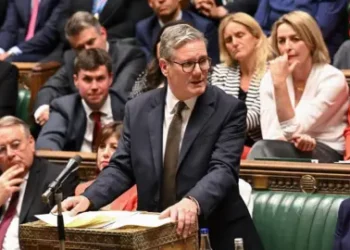According to a recent projection, Labour is expected to win many seats in the upcoming general election.
However, over 100 seats currently held by the Conservatives remain precariously balanced, with millions of undecided or swing voters holding the key to the final outcome.
The first multilevel regression and post-stratification (MRP) model for the 2024 general election by Ipsos estimates Labour could secure 453 seats, while the Conservatives might win only 115.
This would grant Keir Starmer’s Labour Party a substantial majority of 256 seats, marking the worst defeat in the Tories’ history.
The Liberal Democrats are projected to claim 38 seats, the Scottish National Party (SNP) 15, and the Greens and Reform UK three each.
Nigel Farage is forecasted to overturn a significant Conservative majority to win in Clacton, while Jeremy Corbyn, running as an independent, is expected to lose to Labour in Islington North.
Labour’s implied vote share stands at 43%, with Rishi Sunak’s Conservatives trailing at 25%. Reform UK follows with 12%, the Liberal Democrats at 10%, the Greens at 6%, the SNP at 3%, and Plaid Cymru at 1%.
This projection indicated a 15% swing away from the Conservatives since 2019, raising fears among Conservative candidates and officials of an “extinction-level event” if the party cannot close the gap.
Conversely, it might bolster the Conservative strategy of warning against a Labour “super-majority,” arguing it would leave a Labour government unchecked and unaccountable, as they strive to regain voter support.
With polling day just two weeks away, Labour seems on track to achieve a significant majority, surpassing the 326-seat threshold even before accounting for seats deemed too close to call.
The model identifies 117 seats, mostly won by the Tories in 2019, as “too close to call,” with winning margins of less than five percentage points.
These include 56 seats where the Conservatives are slightly ahead and 48 where Labour holds a narrow lead.

With millions of voters still undecided, the Conservative Party hopes to reclaim some support before the election.
Sunak’s party is projected to plummet to a record low of 115 seats, losing ground nationwide, especially in regions where the Tories were strongest in 2019.
Notably, the east and south of England and the Midlands are experiencing severe drops in Conservative support.
The Tories’ worst modern political defeat was under Tony Blair in 1997, when they won just 165 seats.
Their lowest historical tally was 156 MPs in 1906, adjusted to 151 proportional to the size of the Commons, marking their worst result since the party’s founding in 1834.
High-Profile Tories Face Seat Losses
Several high-profile Conservatives risk losing their seats, including Commons leader Penny Mordaunt, Education Secretary Gillian Keegan, Defence Secretary Grant Shapps, and Jacob Rees-Mogg.
However, Chancellor Jeremy Hunt is predicted to retain his seat in Godalming and Ash, while Sunak’s Richmond and Northallerton seat remains Conservative, albeit with a reduced majority of 40% to Labour’s 33%.

Labour’s vote share is rising nationwide, notably in Scotland and north-east England, with more modest gains or slight declines in urban strongholds such as London, Manchester, and Birmingham.
In Wales, despite a modest increase in votes, Labour could gain eight or nine seats due to a decline in Conservative support.
Former Labour leader Jeremy Corbyn, who lost the party whip, is expected to lose to Labour in Islington North, where Labour is projected to capture 54% of the vote, with all independent candidates combined garnering just 13%.
The Liberal Democrats are anticipated to maintain their eight seats from 2019 and gain at least 20 more from the Conservatives, primarily in south-east and south-west England, with another seven seats too close to call.
Reform UK is projected to retain Lee Anderson’s Ashfield seat and capture Clacton, where Farage could overturn a substantial Conservative majority. North West Leicestershire is also leaning towards Reform, though the lead is slim.
Reform UK is expected to achieve its highest vote shares in the north-east, East Midlands, and the east of England.
However, Ipsos cautions that the Brexit party’s decision not to contest Tory seats in 2019 complicates modeling, meaning these contested seats could still shift.
READ ALSO: NDC’s Northern Fortress Under Threat





















